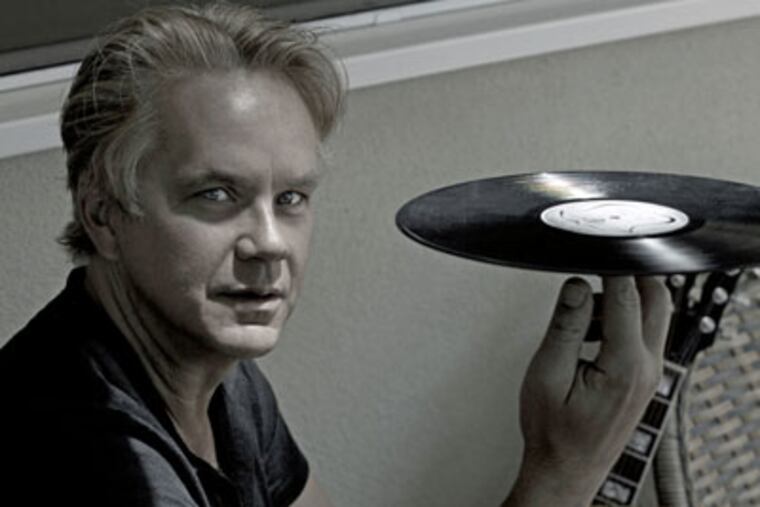Robbins the actor proves an engaging musician
It seems like a classic midlife crisis: Man in his 50s splits from his romantic partner of two decades, forms a band, and heads out on the road, guaranteeing a few weeks of uninterrupted guy time.

It seems like a classic midlife crisis: Man in his 50s splits from his romantic partner of two decades, forms a band, and heads out on the road, guaranteeing a few weeks of uninterrupted guy time.
Tim Robbins, whose 23-year relationship with Susan Sarandon ended in 2009, has admitted as much, joking that he considered calling the self-titled debut by his Rogues Gallery Band "The Midlife Crisis Album."
But Robbins, primarily known as an Oscar-winning actor and one of Hollywood's more insistent left-wing voices, comes by his second career honestly. His mother was a singer, and his father, Gil Robbins, was a member of the folk group the Highwaymen, and also managed New York's storied Gaslight Cafe.
On Thursday night, the Sellersville Theater's stage was flanked by photos of Robbins' parents, who died in April, 12 days apart. The middle of his 90-minute performance turned into a brief memorial, with the band playing along to a recording of Gil Robbins singing "Plaisir d'amour" and a segue into "Wild Mountain Thyme," which Robbins called his parents' favorite song.
But in a broader sense, the evening as a whole served as a tribute to the folk tradition of which his parents were a part. Before jumping into the traditional "Mary Don't You Weep," Robbins recalled first hearing it on his mother's lap as a toddler at a Greenwich Village hootenanny. The seven-piece band, including Robbins' brother, David, on guitar, added touches of pennywhistle, accordion, fiddle, and singing saw to the songs, evoking the sort of ad hoc communal performances where instrumentation is determined by who shows up with what.
There were originals as well, with Robbins stepping into character to sing from the perspective of a traumatized Iraq veteran ("Time to Kill") and a gay teenager who falls for a violently homophobic classmate ("Crush on You"). And if they weren't on the level of the time-tested standards that made up the rest of the set, the band's accomplished playing was such that you could look past the middling quality of the material.
Although his voice is thin and a little tight, leaving him panting after a few of the more energetic numbers, Robbins unsurprisingly proved an engaging stage presence, winning over a pre-primed audience from the start. As the crowd filed out, one less-enthralled listener was overheard suggesting that Robbins hold onto his day job, but if nothing else, he proved himself an adept moonlighter.